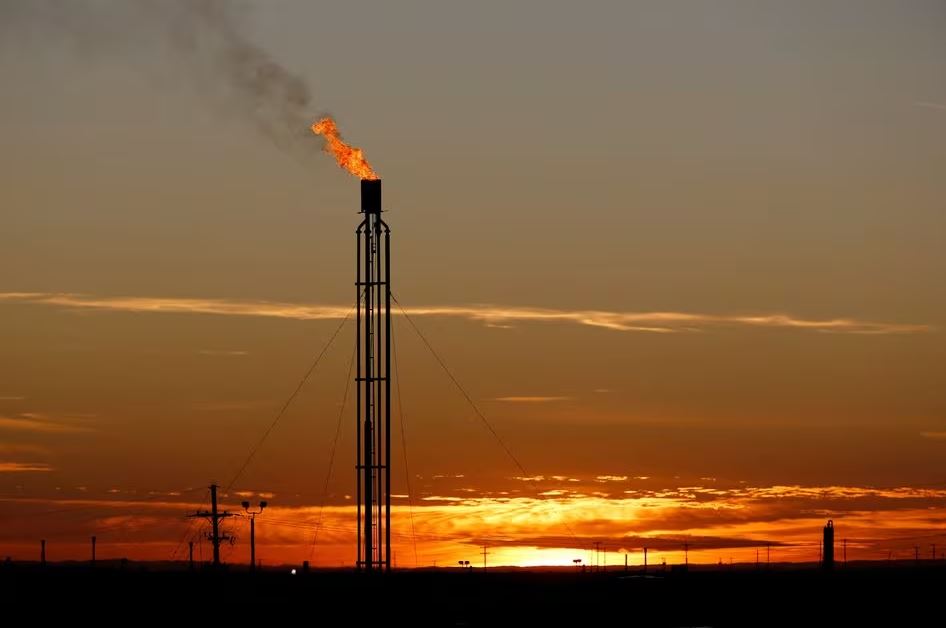Oil prices rose sharply on Monday after OPEC+ members agreed to extend voluntary oil output cuts until the end of the second quarter, largely in line with market expectations, while Russia pledged to cut production and exports.
Brent futures were up 14 cents, or 0.2 percent, at $83.69 a barrel at 04:15 GMT, while US West Texas Intermediate (WTI) was up 2 cents at $79.99 a barrel.
Brent’s one-month fast spread widened 5 cents to 90 cents a barrel, while the six-month spread regained 15 cents to $4.49, a sign traders expect supply to tighten. Backwardation refers to a market structure where flash prices are higher than prices in future months.
“Signs of physical market tension continue to push oil higher. OPEC+ production cuts continue to reduce supply as the market fears renewed tensions in the Middle East,” ANZ analysts said on Monday.
The Organization of the Petroleum Exporting Countries and its allies (OPEC+) are extending their voluntary oil output cut of 2.2 million barrels per day into the second quarter, expected to dampen the market amid global economic worries and rising output outside the group. The Russian announcement surprised some analysts.
Russia will cut its oil production and exports by another 471,000 barrels per day in the second quarter in coordination with some OPEC+ countries, its Deputy Prime Minister Alexander Novak said on Sunday.
The OPEC+ cut would lower the group’s output to 34.6 million bpd in the second quarter, compared with an earlier forecast that output could rise above 36 million bpd in May as producers ease supply curbs, Jorge Leon, senior vice president at consultancy Rystad Energie, said in notes.
“This new move by OPEC+ clearly shows the strong unity within the group, something that was called into question after the November ministerial meeting in which Angola left OPEC,” he said.
“It also shows a strong determination to defend the price floor above $80 per barrel in the second quarter.”
Rising geopolitical tensions over the Israel-Hamas conflict and Houthi attacks on shipping in the Red Sea supported oil prices in 2024, although concerns over economic growth weighed.
Yemen’s Iran-backed Houthis vowed on Sunday to continue targeting British ships in the Gulf of Aden after the British vessel Rubymar was sunk.
In some of the sharpest comments by a senior US leader, US Vice President Kamala Harris on Sunday demanded that the Palestinian militant group Hamas agree to an immediate six-week ceasefire and strongly urged Israel to do more to increase aid flows to Gaza.
Washington has insisted that a ceasefire deal is close and is pushing for a truce to be concluded by the start of Ramadan, in a week’s time. A US official said on Saturday that Israel had agreed to a framework agreement.







